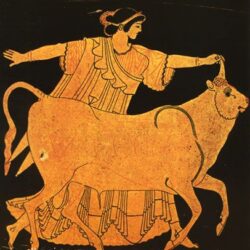I want to focus on Olitskaia’s account because I think it is so incredibly interesting in the way she explores so many different generations of voices of these female prisoners. It gets especially interesting towards the end when she becomes explicitly critical of what she sees as their “baseness and stupidity” (433). Why is she passing this kind of judgment onto these, by all definitions of the word, victims? Why is she so angered by their reactions–it seems as though they’re just trying to get by, holding onto any hope they can, so what makes our narrator so frustrated with them specifically? Is it just the situation she is in? What do you make of the different accounts of the women throughout this piece–what can their perspectives show us about the way of life for not only prisoners within the Communist regime, but other women and people who walk “free”? I put “free” in quotations here because I wonder to what extent their being in prison for seemingly innocuous reasons says about the freedom of everyone under the increasingly paranoid regime. The show trials are another aspect in particular that I think explores this dilemma.

Europe’s Long 20th Century (HIS270 S21)
A Contentious Continent
My Reminiscences was definitely a sad account to read about. All these Soviet women being imprisoned for rather vague reasons, some simply guilty by association. Many of them forced to make false confessions and abused. I think this story helps reveal the truth of Stalinism. People who serve no utility to the state, are simply cast aside and thrown in prison. I think the reason Olitskaia gets very angry at the women singing Soviet songs, is because she believes they are deluded. These women are imprisoned and treated poorly for no concrete reason. Olitskaia simply cannot believe that her fellow prisoners seek to sing songs, and praise a state which is responsible for their misery. It’s almost like praising your abuser. Olitskaia is repulsed by the delusion of her fellow prisoners.